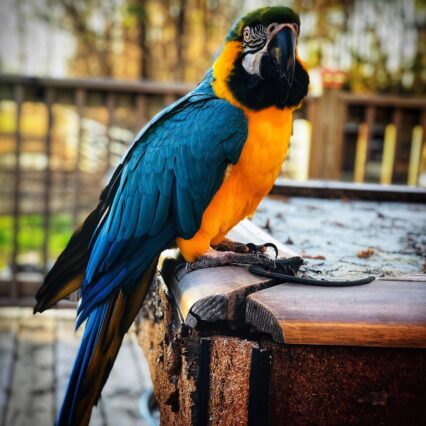- May 16, 2024
How to Train Your Parrot to Be Friendly: 10 Proven Steps
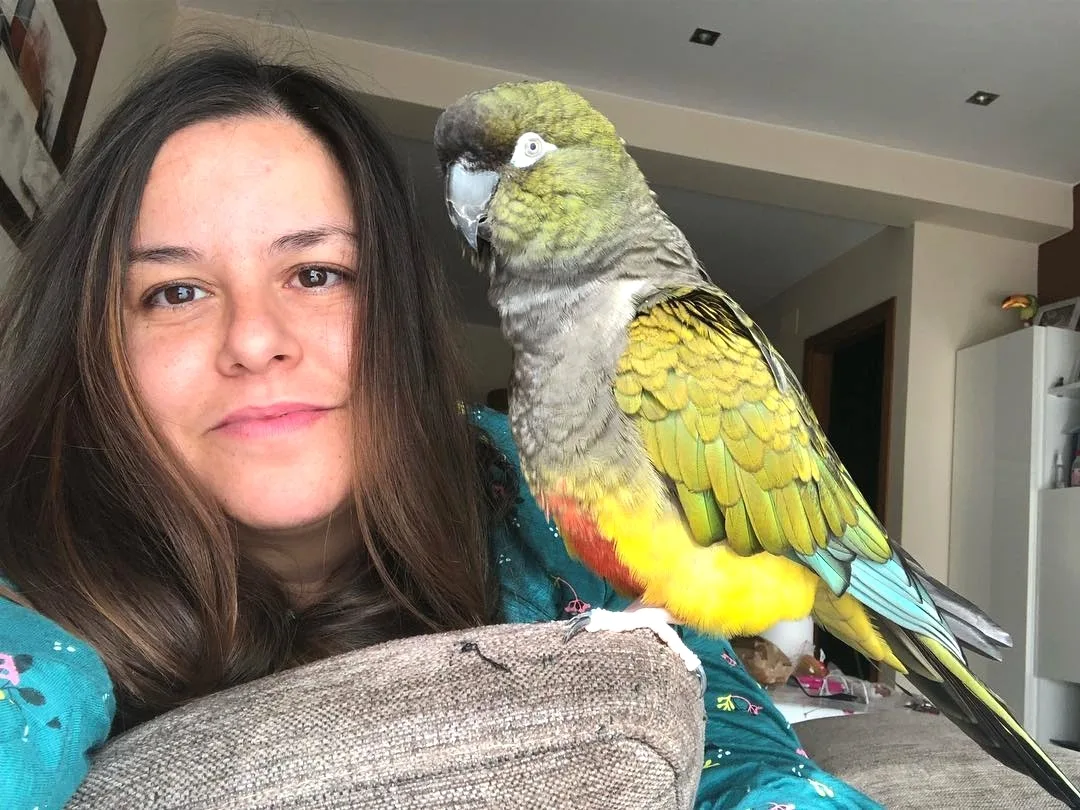
Want your feathered friend to be a social butterfly? Training your parrot to be friendly is easier than you think. From positive reinforcement techniques to socialization tips, we’ve got you covered. Learn how to build trust, encourage good behavior, and foster a strong bond with your parrot. Discover the secrets to transforming your pet into a friendly companion that brightens your day.
Ready to unlock the key to a happy and sociable parrot? Dive into our expert tips and tricks below! Scroll down for reviews of our top picks.
Explore our selection of vibrant parrots for sale. Adopt a healthy parrot today!
-
Sale Product on sale
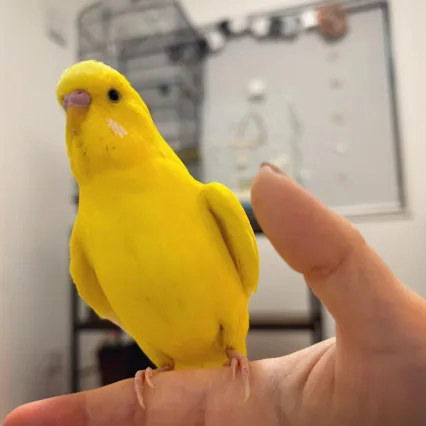 My Name is INK, Female Cockatiel. 20% Off Today – Don’t Miss Out!
My Name is INK, Female Cockatiel. 20% Off Today – Don’t Miss Out!$800.00Original price was: $800.00.$600.00Current price is: $600.00. -
Sale Product on sale
 My Name is CODY, Male Talking Congo African Grey. 20% Off Today – Don’t Miss Out!
My Name is CODY, Male Talking Congo African Grey. 20% Off Today – Don’t Miss Out!$1,600.00Original price was: $1,600.00.$1,400.00Current price is: $1,400.00. -
Sale Product on sale
 Buy JOHNNY, Male Blue Throated Macaw. 20% Off Today – Don’t Miss Out! Limited Time:
Buy JOHNNY, Male Blue Throated Macaw. 20% Off Today – Don’t Miss Out! Limited Time:$1,600.00Original price was: $1,600.00.$1,280.00Current price is: $1,280.00.
Key Takeaways
- Use positive reinforcement training techniques to encourage friendly behavior in your parrot.
- Allow socialization with other birds to help your parrot develop social skills and friendliness.
- Engage your parrot in enrichment activities to keep them mentally stimulated and happy.
- Ensure consistent daily interaction with your parrot to build a strong bond and trust.
- Provide a healthy diet and nutrition to support your parrot’s overall well-being and friendliness.
- Respect your parrot’s body language cues to understand their feelings and needs effectively.
1. Positive Reinforcement Training
Reward your parrot with treats and praises for displaying good behavior to encourage friendliness. Consistency is crucial in reinforcing positive behaviors, helping your bird understand what actions lead to rewards. By using positive reinforcement, you can create a strong bond with your parrot based on trust and mutual respect. Avoid punishment-based training methods as they can lead to fear and aggression in your feathered friend. Through taming techniques like target training or clicker training, you can teach your parrot to interact positively with you. Gradually introduce new tricks and behaviors, rewarding each small step towards friendliness. Remember, patience and understanding are key when guiding your parrot through the learning process.
2. Socialization with Other Birds
ializing your pet bird with other birds is crucial for its overall well-being and development. Here’s how you can facilitate this process:
- Arrange supervised playdates with other friendly birds to promote social interaction.
- Encourage positive interactions by engaging in shared activities like playing with toys or exploring new environments together.
- Monitor body language cues such as relaxed feathers and vocalizations to ensure a safe and enjoyable socialization experience.
Socializing with other birds not only helps in reducing loneliness but also enhances your pet bird’s communication skills and behavioral development. By providing opportunities for interaction with others, you are fostering a sense of companionship and mental stimulation essential for a happy and friendly pet bird.
3. Enrichment Activities
Enrich your parrot’s life with various toys to keep them mentally stimulated. Rotate these toys frequently to prevent boredom and maintain their interest. Introducing foraging activities can mimic their natural behaviors, providing both mental and physical exercise.
By offering a diverse range of toys, you can cater to your parrot’s preferences and keep them engaged throughout the day. Foraging activities not only stimulate their problem-solving skills but also satisfy their instinctual need to search for food, promoting a healthier and happier bird.
Ensure that the toys are safe and suitable for your parrot’s size and species. Monitor their interaction with each toy to assess their level of engagement and adjust accordingly. Enrichment activities play a crucial role in maintaining your parrot’s well-being and fostering a friendly and sociable demeanor.
4. Consistent Daily Interaction
Engage in interactive games daily to strengthen the bond with your parrot. Quality time spent together is crucial for building trust and creating a friendly relationship. Establishing a routine helps provide a sense of security for your feathered friend.
Regular interaction with your parrot allows you to understand its preferences and behavior, leading to a deeper connection. Through consistent daily engagement, you can address any potential issues promptly, ensuring a harmonious environment for your pet.
Creating a nurturing and engaging atmosphere through daily interactions can significantly impact your parrot’s socialization skills and overall well-being. By dedicating time each day to play, communicate, and bond with your parrot, you are fostering a positive and friendly relationship that will continue to grow over time.
5. Healthy Diet and Nutrition
Maintaining a balanced diet for your parrot is crucial for its overall health and well-being. Offer a mix of nutrient-rich pellets, fresh fruits, and vegetables to ensure they receive essential vitamins and minerals. Consulting with an avian vet can provide tailored dietary recommendations based on your parrot’s specific needs.
Avoid overindulging your parrot in high-fat or sugary treats as they can lead to health issues like obesity and diabetes. By providing a diverse range of foods, you can promote good eating habits and prevent nutritional deficiencies in your feathered friend.
Ensuring your parrot receives the right nutrition not only supports their physical health but also contributes to their behavioral well-being. A healthy diet can enhance their mood, energy levels, and overall friendliness towards you and other family members.
6. Respect Your Parrot’s Body Language
Understanding body language is crucial in building a strong bond with your parrot. Interpret signs of stress or discomfort to ensure a positive interaction. Let your parrot take the lead in starting or ending interactions, promoting a sense of control and comfort for them. Always respect their personal space and boundaries, allowing them to feel secure and respected in your presence.
- Learn to read subtle cues like feather position and eye dilation.
- Give your parrot the freedom to approach you on their terms.
- Avoid forcing physical contact if your parrot shows signs of reluctance.
Respecting your parrot’s body language not only fosters trust but also creates a harmonious relationship based on mutual understanding and respect.
7. Create a Safe and Stimulating Environment
To foster a friendly parrot, it is crucial to provide a safe and stimulating environment. Start by providing a spacious cage equipped with appropriate perches and toys to keep your parrot engaged. Ensure the surroundings are free from toxic substances that could harm your feathered friend.
Offering opportunities for exercise and exploration is key to keeping your parrot mentally and physically stimulated. Consider incorporating interactive toys that encourage play and movement. Consider rotating toys regularly to prevent boredom and promote mental agility.
Creating a safe and stimulating environment not only enhances your parrot’s well-being but also strengthens the bond between you and your pet through shared activities in an enriching setting.
8. Teach Basic Commands
Training your parrot to respond to basic commands is essential for effective communication and bonding. Start with simple cues like “step up” or “come here” to establish a foundation for further training. Use positive reinforcement such as treats or verbal praise to motivate your parrot to learn and follow the commands consistently.
Practicing these commands in a quiet, distraction-free setting helps your parrot focus and understand what is expected. Consistency is key in reinforcing these behaviors, so make sure to practice regularly. By incorporating basic commands into your training routine, you are not only teaching your parrot useful skills but also strengthening the bond between you both.
9. Patience and Persistence
Training your parrot to be friendly requires practice and dedication. It’s essential to invest time in building a strong bond with your feathered friend. Consistency is key in reinforcing positive behaviors and discouraging negative ones.
When facing challenges, remember that setbacks are a part of the process. Approach each obstacle as an opportunity to learn and grow together. Celebrate even the smallest achievements along the way to keep motivation high.
Maintain a calm demeanor during training sessions. Avoid reacting impulsively to undesired behaviors, as this can confuse your parrot. By staying patient and persistent, you will gradually see progress in your parrot’s behavior and bonding with you.
10. Regular Veterinary Check-ups
Regular veterinary check-ups are crucial for maintaining your pet parrot’s health and well-being. Schedule annual visits with an avian veterinarian to ensure your feathered friend is in optimal condition. Keep a close eye on any changes in behavior or appetite, as these can be early indicators of underlying health issues that need attention. Discuss vaccination and parasite prevention strategies with your vet to safeguard your parrot against common illnesses and pests. By staying proactive with regular veterinary care, you can provide the best possible quality of life for your beloved pet bird.
Closing Thoughts
Incorporating positive reinforcement, socializing with other birds, engaging in enrichment activities, and maintaining consistent interaction are key to training your parrot effectively. Ensuring a healthy diet, respecting your parrot’s body language, creating a safe environment, teaching basic commands, and being patient yet persistent will help foster a friendly bond with your feathered friend. Regular veterinary check-ups are crucial for your parrot’s well-being and overall development.
Take these tips to heart and watch as your parrot blossoms into a sociable and affectionate companion. By following these guidelines, you’ll not only create a harmonious relationship with your parrot but also ensure their happiness and longevity. Your efforts in training and caring for your parrot will be rewarded with endless joy and companionship.
Explore our selection of vibrant parrots for sale. Adopt a healthy parrot today!
-
Sale Product on sale
 My Name is MINTO & RARA, Male & Female Conure. 20% Off Today – Don’t Miss Out!
My Name is MINTO & RARA, Male & Female Conure. 20% Off Today – Don’t Miss Out!$900.00Original price was: $900.00.$700.00Current price is: $700.00. -
Sale Product on sale
 My Name is SABRINA, Female Talking Timneh African Grey. 20% Off Today – Don’t Miss Out!
My Name is SABRINA, Female Talking Timneh African Grey. 20% Off Today – Don’t Miss Out!$1,600.00Original price was: $1,600.00.$1,400.00Current price is: $1,400.00. -
Sale Product on sale
 Buy PAPAYA, Male Amazon Parrot. 20% Off Today – Don’t Miss Out! Limited Time:
Buy PAPAYA, Male Amazon Parrot. 20% Off Today – Don’t Miss Out! Limited Time:$1,600.00Original price was: $1,600.00.$1,400.00Current price is: $1,400.00.
Frequently Asked Questions
How can positive reinforcement training help in taming my pet bird and making it friendly?
Positive reinforcement training involves rewarding good behavior to encourage it. By using treats and praise when your parrot behaves friendly, you reinforce positive interactions and create a strong bond based on trust and rewards.
What are some enrichment activities that can help in training my parrot to be friendly?
Enrichment activities like puzzle toys, foraging games, and interactive play sessions stimulate your parrot’s mind and keep them engaged. These activities prevent boredom, encourage socialization, and help in building a positive relationship with your feathered friend.
Why is consistent daily interaction important for taming the friendliness of my pet bird?
Regular interaction with your parrot helps build trust, strengthen the bond between you and your pet, and encourages socialization. Consistency in spending time together allows your parrot to feel secure and loved, leading to a friendly and affectionate demeanor.
How does teaching basic commands contribute to making my parrot more friendly?
Regular interaction with your parrot helps build trust, strengthen the bond between you and your pet, and encourages socialization. Consistency in spending time together allows your parrot to feel secure and loved, leading to a friendly and affectionate demeanor.
Tags
What do you think?
Related Articles
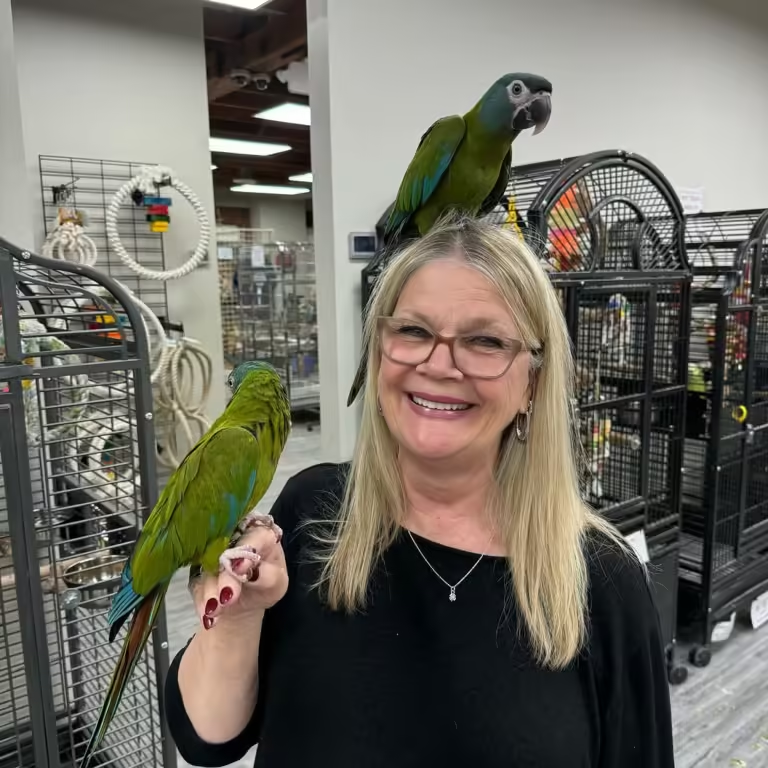
Find Parrots for Sale in Aurora IL: Top 5 Must-Visit Spots
Finding the perfect parrot in Aurora, IL, is an exciting adventure for bird lovers. This city offers various options for
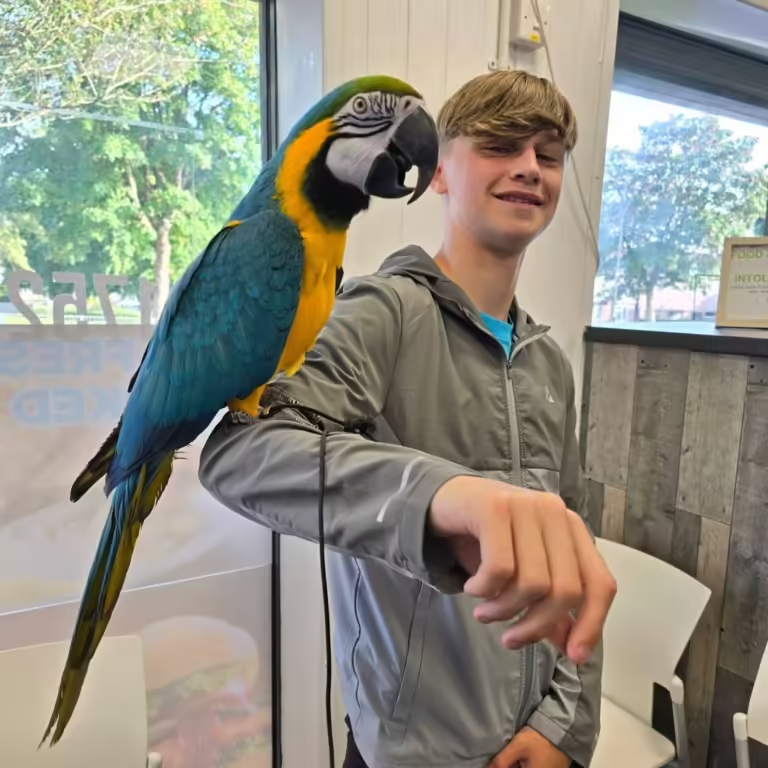
Find Parrots for Sale in Trenton NJ: Top 5 Must-See Spots!
Finding the perfect parrot can be a fun adventure. Trenton, NJ, offers plenty of options for bird lovers. From local
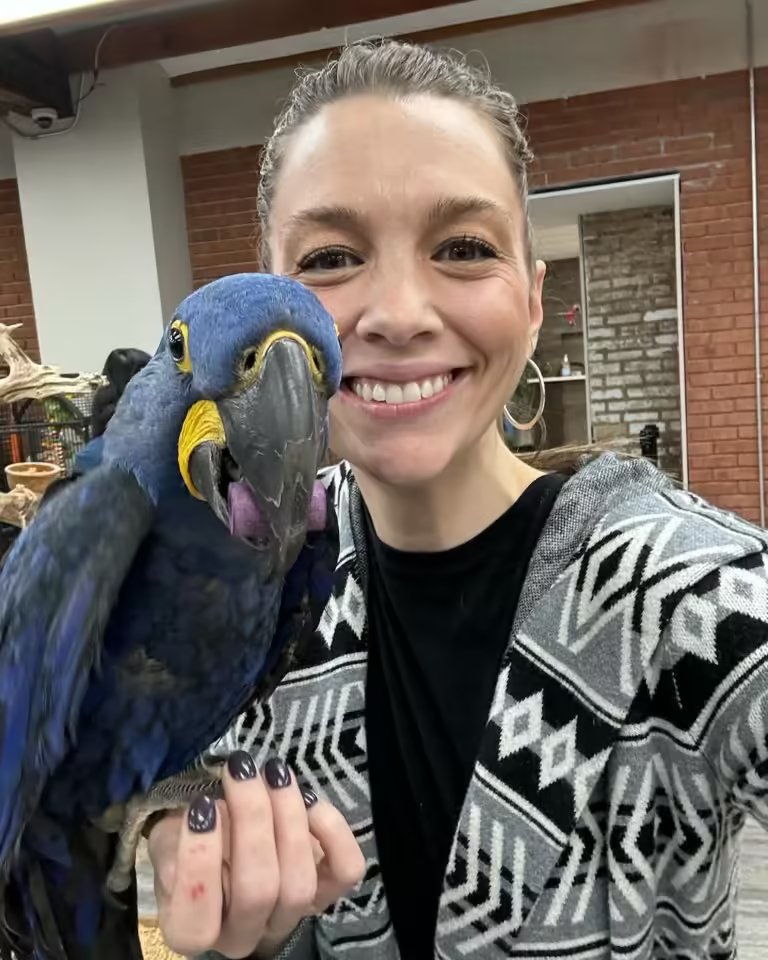
Find Parrots for Sale in Woodbridge Township NJ: Top 5 Must-See Spots!
Finding the perfect parrot can be a fun adventure. Woodbridge Township, NJ offers plenty of options for bird lovers. From


